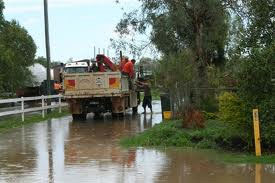What is mind map
A mind map is a diagram used to represent words, ideas, tasks, or other items linked to and arranged around a central key word or idea. Mind maps are used to generate, visualize, structure, and classify ideas, and as an aid to studying and organizinginformation, solving problems, making decisions, and writing.
The elements of a given mind map are arranged intuitively according to the importance of the concepts, and are classified into groupings, branches, or areas, with the goal of representing semantic or other connections between portions of information. Mind maps may also aid recall of existing memories
The mind map can be contrasted with the similar idea of concept mapping. The former is based on radial hierarchies and tree structures denoting relationships with a central governing concept, whereas concept maps are based on connections between concepts in more diverse patterns.
By presenting ideas in a radial, graphical, non-linear manner, mind maps encourage a brainstorming approach to planning and organizational tasks. Though the branches of a mindmap represent hierarchical tree structures, their radial arrangement disrupts the prioritizing of concepts typically associated with hierarchies presented with more linear visual cues This orientation towards brainstorming encourages users to enumerate and connect concepts without a tendency to begin within a particular conceptual framework
User of Information
Access to computer systems and networks owned or operated by Virginia Tech imposes certain responsibilities and obligations and is granted subject to university policies, and local, state, and federal laws. Acceptable use always is ethical, reflects academic honesty, and shows restraint in the consumption of shared resources. It demonstrates respect for intellectual property, ownership of data, system security mechanisms, and individuals' rights to privacy and to freedom from intimidation and harassment.
Good And poor Information
There is a tremendous amount of useful, factual information available online. Unfortunately, it's also very easy to find incorrect or misleading information when searching online.
It can be quite difficult to determine whether the information you find on the internet is good or bad. Lots of incoherent information is posted every day by people simply looking to jump ahead in the search engine rankings.
Have you ever read through an entire article or website, only to realize that you have more questions than you did when you started? You've probably stumbled upon some poor information in your time using the internet. There are different kinds of incorrect information available online; read on to find a description of these different types.
Intentionally Misleading Information - If you've browsed Wikipedia for a fair amount of time you've probably came across a page that was locked. This happens often when celebrities are are involved in scandals or when they pass away. Some of the comments you may encounter are totally inaccurate, while others might be controversial and subject to argument on both sides of the issue.
Wikipedia's administrators lock pages when there are too many edits coming in that present false information. This is especially common for the pages of celebrities with poor reputations, which often have derogatory information posted on them. Visit the page of a controversial celebrity and look at the edit history; you'll almost definitely see some of these edits. This is one of the negatives that come with user contributed sites, and these things must be screened carefully when the open source frameworks permit such easy access by the general public.
Unintentionally False Information - Everywhere you look online, you'll find someone claiming to be an expert and sharing his or her secrets. While they may not be trying to intentionally mislead you, they're often not 100% correct.
Always question the claims of any self-proclaimed experts online. You can double-check the facts behind their statements to be sure that what they're saying is truthful. Most of these people are simply trying to make money, and even though they may not have any malicious intent, the end result still has you believing false information.
Despite all of this, don't be scared to find information online. There's still a huge amount of useful information that can be found on the internet; you just have to do a little extra research sometimes and try to stick to reputable sources. Stick with these sources and more likely than not, you won't be mislead.
Sources of information
Secondary data is data which has been collected by individuals or agencies for purposes other than those of our particular research study. For example, if a government department has conducted a survey of, say, family food expenditures, then a food manufacturer might use this data in the organisation's evaluations of the total potential market for a new product. Similarly, statistics prepared by a ministry on agricultural production will prove useful to a whole host of people and organisations, including those marketing agricultural supplies.
No marketing research study should be undertaken without a prior search of secondary sources (also termed desk research). There are several grounds for making such a bold statement.
· Secondary data may be available which is entirely appropriate and wholly adequate to draw conclusions and answer the question or solve the problem. Sometimes primary data collection simply is not necessary. · It is far cheaper to collect secondary data than to obtain primary data. For the same level of research budget a thorough examination of secondary sources can yield a great deal more information than can be had through a primary data collection exercise.
· The time involved in searching secondary sources is much less than that needed to complete primary data collection.
· Secondary sources of information can yield more accurate data than that obtained through primary research. This is not always true but where a government or international agency has undertaken a large scale survey, or even a census, this is likely to yield far more accurate results than custom designed and executed surveys when these are based on relatively small sample sizes.
· It should not be forgotten that secondary data can play a substantial role in the exploratory phase of the research when the task at hand is to define the research problem and to generate hypotheses. The assembly and analysis of secondary data almost invariably improves the researcher's understanding of the marketing problem, the various lines of inquiry that could or should be followed and the alternative courses of action which might be pursued.
· Secondary sources help define the population. Secondary data can be extremely useful both in defining the population and in structuring the sample to be taken. For instance, government statistics on a country's agriculture will help decide how to stratify a sample and, once sample estimates have been calculated, these can be used to project those estimates to the population.
Data, Information, Knowledge, and Wisdom
There is probably no segment of activity in the world attracting as much attention at present as that
of knowledge management. Yet as I entered this arena of activity I quickly found there didn't seem
to be a wealth of sources that seemed to make sense in terms of defining what knowledge actually
was, and how was it differentiated from data, information, and wisdom. What follows is the current
level of understanding I have been able to piece together regarding data, information, knowledge,
and wisdom. I figured to understand one of them I had to understand all of them.
According to Russell Ackoff, a systems theorist and professor of organizational change, the content
of the human mind can be classified into five categories:
Ackoff indicates that the first four categories relate to the past; they deal with what has been or what
is known. Only the fifth category, wisdom, deals with the future because it incorporates vision and
design. With wisdom, people can create the future rather than just grasp the present and past. But
achieving wisdom isn't easy; people must move successively through the other categories.
A further elaboration of Ackoff's definitions follows:
Data: symbolsInformation: data that are processed to be useful; provides answers to "who", "what",Knowledge: application of data and information; answers "how" questionsUnderstanding: appreciation of "why"Wisdom: evaluated understanding.
Data
can exist in any form, usable or not. It does not have meaning of itself. In computer parlance, a
spreadsheet generally starts out by holding data.
... data is raw. It simply exists and has no significance beyond its existence (in and of itself). It
Information
This "meaning" can be useful, but does not have to be. In computer parlance, a relational database
makes information from the data stored within it.
... information is data that has been given meaning by way of relational connection.
Knowledge
useful. Knowledge is a deterministic process. When someone "memorizes" information (as lessaspiring
test-bound students often do), then they have amassed knowledge. This knowledge has
useful meaning to them, but it does not provide for, in and of itself, an integration such as would
infer further knowledge. For example, elementary school children memorize, or amass knowledge
of, the "times table". They can tell you that "2 x 2 = 4" because they have amassed that knowledge
(it being included in the times table). But when asked what is "1267 x 300", they can not respond
correctly because that entry is not in their times table. To correctly answer such a question requires
a true cognitive and analytical ability that is only encompassed in the next level... understanding. In
computer parlance, most of the applications we use (modeling, simulation, etc.) exercise some type
of stored knowledge.... knowledge is the appropriate collection of information, such that it's intent is to be
http://en.wikipedia.org/wiki/Mind_map
http://en.wikipedia.org/wiki/User_information
http://ezinearticles.com/?Poor-and-Good-Information-Available-Online&id=4303157
http://en.wikipedia.org/wiki/Information_source
http://www.systems-thinking.org/dikw/dikw.htm
 Bing is Microsoft's attempt at unseating Google. Bing used to be MSN search until it was updated in summer of 2009. Touted as a 'decision engine', Bing tries to support your researching by offering suggestions in the leftmost column, while also giving you various search options across the top of the screen. Things like 'wiki' suggestions, 'visual search', and 'related searches' might be very useful to you. Bing is not dethroning Google in the near future, no. But Bing is definitely worth trying.
Bing is Microsoft's attempt at unseating Google. Bing used to be MSN search until it was updated in summer of 2009. Touted as a 'decision engine', Bing tries to support your researching by offering suggestions in the leftmost column, while also giving you various search options across the top of the screen. Things like 'wiki' suggestions, 'visual search', and 'related searches' might be very useful to you. Bing is not dethroning Google in the near future, no. But Bing is definitely worth trying.



 Floods have an impact on entire communities, however , many people (living or working on higher ground) may not be directly affected, and would LOVE to be able to help, but are not sure how.
Floods have an impact on entire communities, however , many people (living or working on higher ground) may not be directly affected, and would LOVE to be able to help, but are not sure how. There are many many thing that could be assistance to the Qld flood victims – many communities have been devastated and some have lost everything, so pretty much anything which might help them get started on the road back to a normal life could be of benefit. It’s not only goods and items that are of help though. offers of a helping hand, a bit of a break, or even a shoulder to cry on can help a lot. Often very simple things can make a big difference as it reminds the flood victims that they are not alone, people really do care, and that their lives will return to normal even if it takes time.
There are many many thing that could be assistance to the Qld flood victims – many communities have been devastated and some have lost everything, so pretty much anything which might help them get started on the road back to a normal life could be of benefit. It’s not only goods and items that are of help though. offers of a helping hand, a bit of a break, or even a shoulder to cry on can help a lot. Often very simple things can make a big difference as it reminds the flood victims that they are not alone, people really do care, and that their lives will return to normal even if it takes time.


